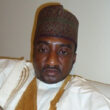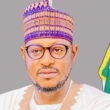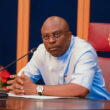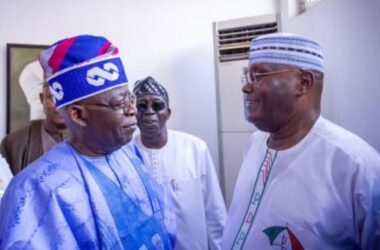Former Akwa Ibom State Governor, Obong Victor Attah, has strongly criticized Nigeria’s constitutional framework, describing it as a major obstacle to the nation’s development. Attah lamented that the centralised nature of the constitution undermines state autonomy and stifles progress, especially in critical sectors like energy production and distribution.
Attah made these remarks as a guest on Inside Sources with Laolu Akande, a socio-political program aired on Channels Television. He emphasized that the nation’s current constitutional arrangement, imposed by the military, lacks the true federalism necessary for sustainable development.
“It does not say much about party politics; it says much about the constitution that we have — the non-federal constitution that we have,” Attah said. “If we had a true federal constitution, it would never have happened. I would have built my power station. Whatever party I belong to wouldn’t have mattered. What is fundamentally wrong with us is the nature of the constitution that we have today — it is not a federal constitution, and unless and until we go federal, we will not make progress.”
Attah recounted his frustrating experience during his tenure as governor of Akwa Ibom State from 1999 to 2007. He alleged that former President Olusegun Obasanjo prevented him from distributing electricity directly to Akwa Ibom residents after his administration built a 191-megawatt power station using state funds.
“We generate power and put it in the national grid – the inefficient national grid that is always collapsing. Every kobo that was spent was Akwa Ibom money to build that power station, but a faulty constitution and constitutional arrangement make it possible for a president to say, ‘Even this power station, I’m taking it from you and I’m putting it in the national grid.’”
Attah added that the then-president commended his efforts by commissioning the power station but later implemented a law mandating that all electricity generated by states must be fed into the national grid.
“I decided I wanted to give Akwa Ibom State power. The president said no. The Federal Government is providing power for the country. I built that power station, but because of the faulty federal arrangement, I was stopped. It should not happen in a federal arrangement.”
Attah criticized the current constitution for creating a system where federating units are subordinate to the central government, describing it as authoritarian. He urged President Bola Tinubu to champion true federalism by reverting to a people-driven constitution, similar to what Nigeria’s founding fathers envisioned at independence.
“What we have now is an authoritarian system called the Constitution because it was imposed by the military. We need to go back to an agreeable constitution by our founding fathers at independence,” he said.
Attah expressed disappointment that the Tinubu administration has not initiated steps toward restructuring the country to reflect true federalism.
Despite his criticisms, Attah praised the recent amendment of the Electricity Act 2023, which grants states the authority to generate, distribute, and regulate electricity within their jurisdictions.
“Now that the new law has been brought out, our governor (Umo Eno) is working very hard to make sure that we now have an Akwa Ibom power company that not only generates but distributes power to the people,” Attah said.
The amendment has been hailed by experts as a significant step toward decentralizing Nigeria’s electricity sector, fostering industrialization, and boosting productivity across states.
For decades, Nigeria has grappled with a chronic energy crisis marked by erratic power supply and systemic inefficiencies in generation, transmission, and distribution. Despite the privatisation of the electricity sector, challenges such as policy inconsistency, inadequate investments, and operational issues persist.
In 2024, the Nigerian Electricity Regulatory Commission (NERC) approved an upward review of electricity tariffs, with Band A customers now paying about N250 per unit of power. This increase, coupled with skyrocketing costs of petrol and diesel, has exacerbated the financial burden on consumers.
In the same year, NERC granted licenses to at least eight state electricity regulatory commissions, including Enugu, Ekiti, Ondo, Imo, Edo, Kogi, Oyo, and Lagos. Analysts have described this move to democratize the electricity market as a critical step toward addressing Nigeria’s energy woes.
Attah maintained that while the Electricity Act 2023 is a positive development, the broader issue lies in the nation’s constitutional framework. He called for a restructuring of Nigeria’s governance model to empower states and enable them to function as autonomous entities, free from the overreach of the federal government.
“Interesting enough, only this morning I was reading the papers and I heard where our respected Dr Ngozi Okonjo-Iweala said we should decentralize power generation and distribution. That’s what I was trying to do. If I had succeeded, several other states would have followed suit.”
Attah concluded by urging Nigeria’s leadership to embrace true federalism as the foundation for national progress and development.










